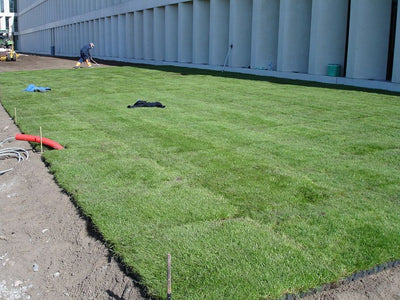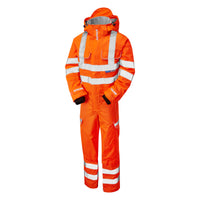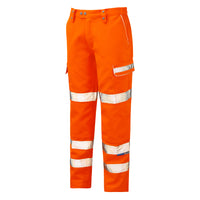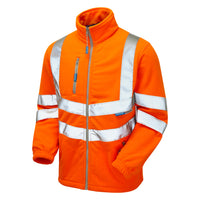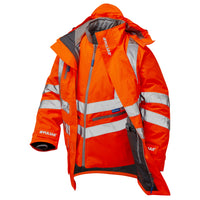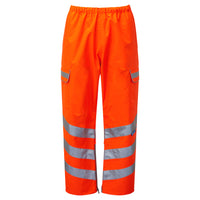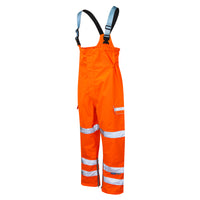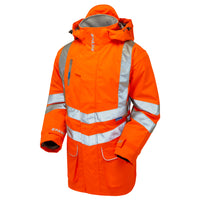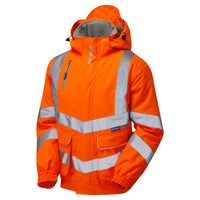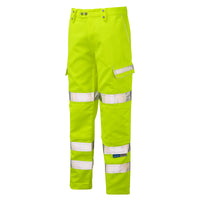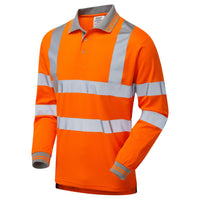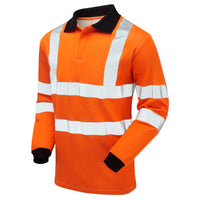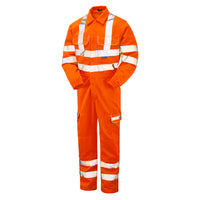Understanding EN 20471 Workwear Safety Standards
If you have been asked to purchase appropriate high-visibility clothing for work, you have no doubt already run into the gauntlet of EN ISO 20417 and the various classes it encompasses. You may be asking yourself, “What is EN ISO 20471?” We are here to answer and help you understand. It can initially seem complicated, but it is very simple once you break it down.
Before that, it is worth considering why getting the right specifications for hi-vis workwear is important. Choosing a lesser specification may save some money, but it may also result in you not being seen in low-light conditions and consequently being hit by a vehicle or equipment, resulting in injury or even death.
So, what is EN 20471? In short, it is a set of standards that both the EU and the UK adhere to. These standards allow hi-vis workwear to be quickly and easily classified and ensure suitable levels of protection for all working environments, from low-risk to high-risk situations. Now that we have EN 20471 explained in brief, let's dive into some of the facts, levels, details and requirements that ultimately make workwear EN 20471 compliant.
The Main EN 20471 Requirements & Hi Vis Regulations UK
EN 20471 requires that clothing has both of the following components at a minimum;
- Retro Reflective Bands -These silver bands allow workers to be seen clearly and easily in car headlights and the lights of other equipment. They work by bouncing light directly back at the source. To the drivers of plant equipment and vehicles, this makes the bands appear as bright as their headlights, immediately highlighting them in the dark.
- Fluorescent / Luminous material - To ensure workers can be seen during twilight and daylight hours EN 20471 requires that hi-visibility clothing MUST contain a percentage of either red, orange or yellow luminous material. This material helps workers stand out against grass embankments, tarmac, concrete, plant equipment and other settings where they could easily vanish into the background.
Now that we know what EN 20471 requires of workwear, we can examine the standard's classes and potential use cases.
How Many Classes of High Visibility Clothing are There?
The short answer is three, but before you head off to work, you need to know which class out of the three best suits the task at hand. The working conditions and location will dictate the most appropriate clothing class for the job.
EN ISO 20471 Class 1 Requirements
EN 20471 class 1 clothing should only be used in low-hazard environments, generally where vehicles move at slow speeds (up to 19 miles per hour). An example use case would be in a warehouse or factory where forklifts operate.
This clothing class also allows for a large portion of the workwear to be coloured navy or black. This can be useful for hiding stains and grime from dirty tasks such as cleaning waste tanks, maintaining vehicles or sorting rubbish.
EN ISO 20471 Class 2 Requirements
EN 20471 class 2 garments are suitable for areas with an intermediate level of risk, such as vehicles travelling up to 25mph with higher levels of traffic. Roles where this type of clothing may be required include logistics hubs, quarries, mining and construction sites.
Most hi-vis trousers and short-sleeved polo shirts conform to this standard.
EN ISO 20471 Class 3 Requirements
EN 20471 Class 3 hi-vis clothing is required in high-risk areas where vehicles operate at higher speeds. It also requires that the worker's full outline is covered, which means long sleeves on tops. Some settings where this class is often worn include rail work sites and road works.
The full outline requirement of class 3 means that operators of excavators and other heavy plant equipment can fully distinguish a worker's outline even in adverse weather conditions or low-light environments.
Honourable Mention - Enhanced Visibility
It should be noted that some brands offer “enhanced visibility” clothing with many of the requirements for high visibility clothing yet do not comply with the requirements of EN ISO 20471. These products still have their place, often in areas where hi-vis clothing is not required due to health and safety reasons or legislation. Hobby users often find this style more enticing, as well as jogging and cycling, ensuring they can be seen on the roads without looking like construction workers.
What to Look for When Buying EN 20471:2013 High-Visibility Clothing
Now that you understand the EN 20471 safety standards, you can decide on your chosen brand, style and vendor. There are a few final takeaways to ensure you get what you expect and that you can use your purchased clothing on-site. We recommend that anyone looking to purchase hi-vis clothing follow these steps.
- Shop with a Trustworthy Vendor -Some marketplaces offer non-compliant clothing or fake clothing that is sold as meeting the required standards but does not. Look for someone with BSIF accreditation, as they audit resellers, ensuring that their products and their manufacturers' products meet the required standards.
- Buy a Trustworthy Brand -When buying a critical piece of safety equipment, take note of the brand. Although an ‘unknown brand name’ may be cheaper, will it last as long as a named brand alternative and deliver the performance you need?
- Check the Label - Once you have your clothing in hand, check it has the proper markings. All hi-vis clothing should include markings that indicate its standard and conformity. This can be shown in a few ways, but the most common way is a diagram of a hi-vis vest with a number indicating the class next to it.
- Not All Sizes are Equal -Unfortunately, due to the surface area requirements of the different classes, some clothing cannot achieve the required coverage of retro-reflective material in smaller sizes. This can often also be the case for ladies' sizing.
- Check with your Site Manager - Most sites will stipulate what class of Hi Vis workwear you will need, preventing you from having to do the homework yourself.
- Check the Colour - Some sites require specific colours of hi-vis clothing to be worn and even prohibit other colours. This can be the case on rail sites where yellow clothing can be confused with signalling equipment.
- RIS-3279-TOM -Check if your employer requires that your workwear comply with this additional standard, which is used as a minimum in the rail industry. This standard often appears on orange garments alongside the EN 20471 standard.
Hopefully, you found this article useful and now know a lot more about why you need certain types of clothing featuring retroreflective materials and tapes. You are now in a great position to purchase your required hi-vis clothing; you can find our full range in our hi-vis clothing collection.
- Author




